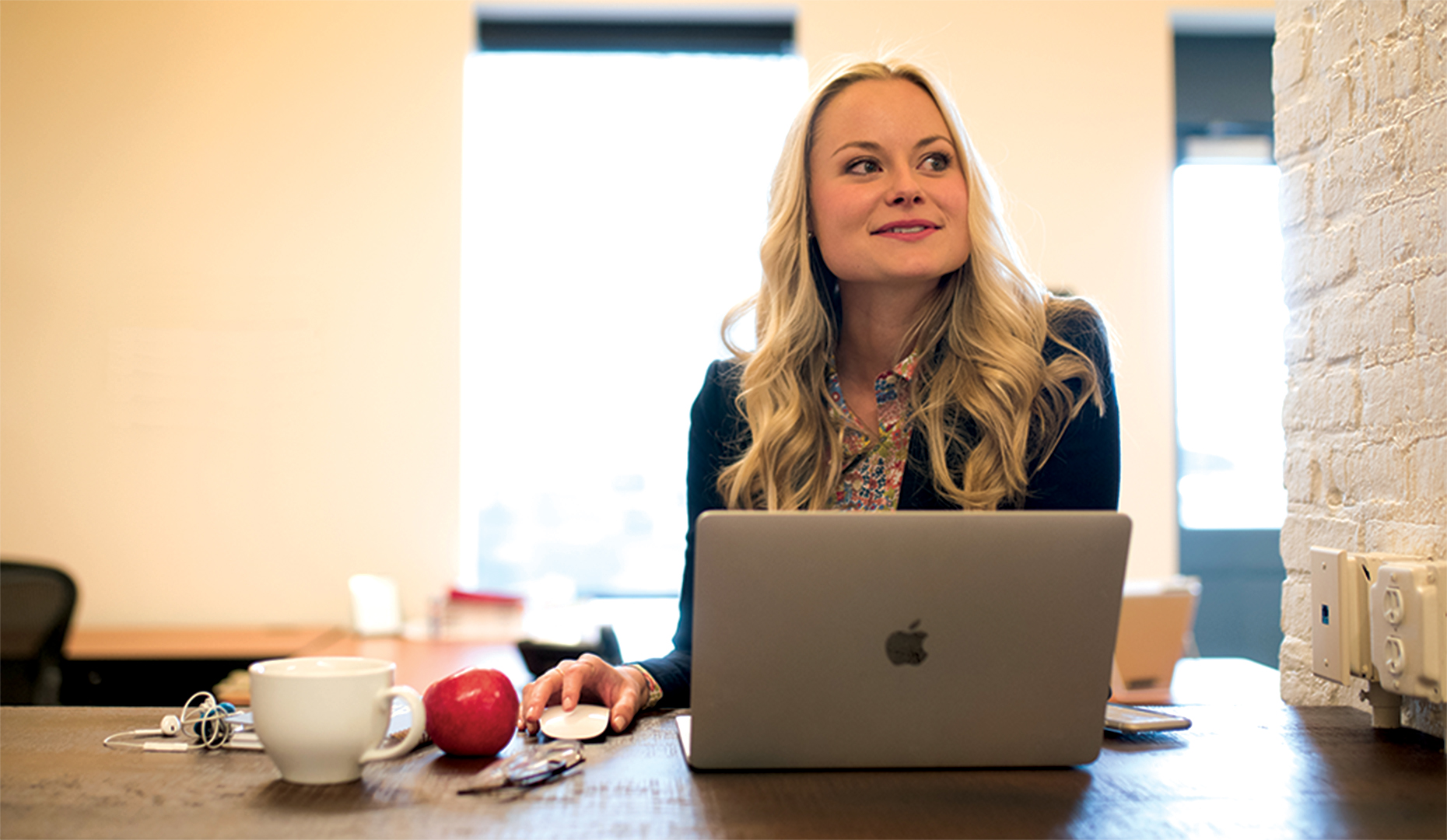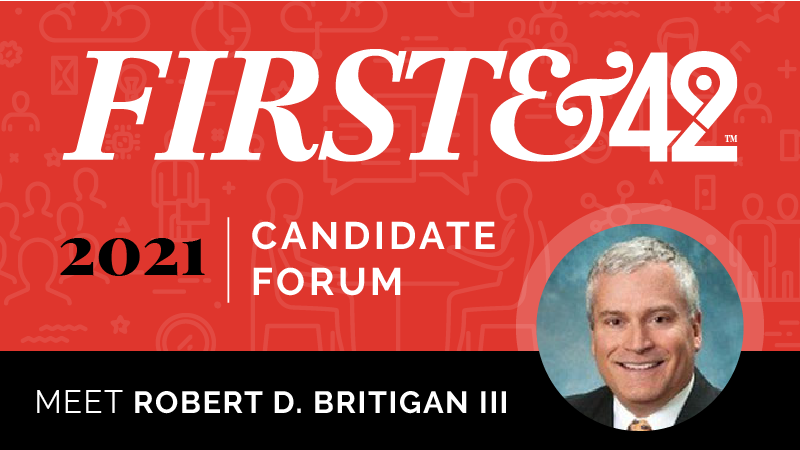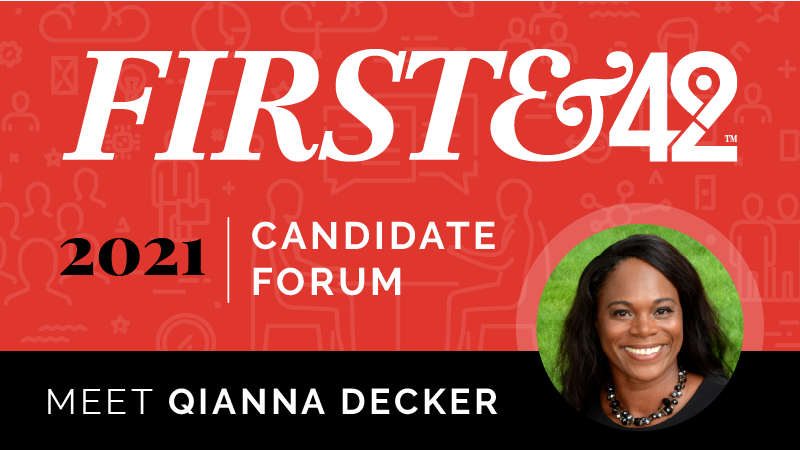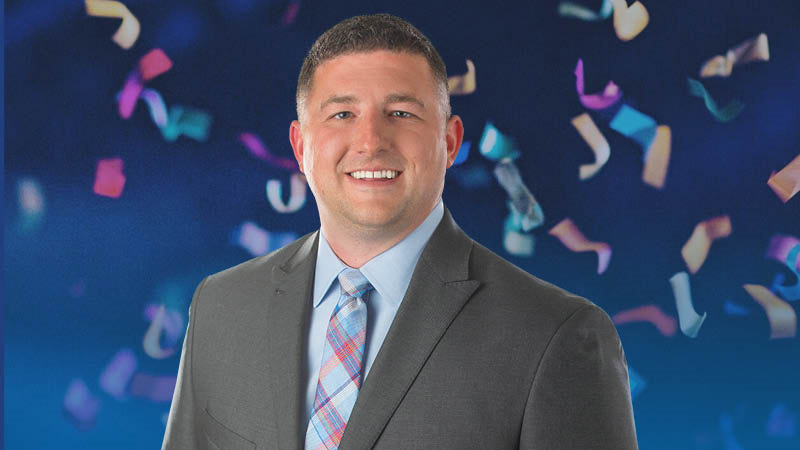A conversation with Sara Dunn, Founder and Project Lead at 11Web.
What does a web designer do?
(A web designer) translates what a business or individual does into an interactive format that provides more information for a potential customer.
What does your typical day look like?
My company is entirely remote; I might be in my home office in Battle Creek or I might be traveling. So a typical day is never typical. I might be spending a lot of time answering email, I might be on video calls with my team or my clients, or I might be in fully focused work time, heads down, email paused, doing work and strategy, managing social media, doing competitive research, writing content, any of those things. No two days are the same.
You mentioned your team works remotely. Could you tell us about that?
My graphic designer just moved from Hawaii to Colorado. Our “happiness specialist” lives in Michigan but is spending several months a year in Arkansas. And we have one more team member who works from Florida. So we’re really good at video conferencing.
How did you become a web designer?
I don’t know if I actually decided to become a web designer, it kind of happened to me. I didn’t actually go to college for a design degree. I was an international business major, and website design and build was something that I did as a hobby. I taught myself to code in junior high for a Girl Scout troop project; when a friend said they needed a website, I told them I would figure it out. And I did—it was really fun. I just started making websites for friends. Then one friend told another friend and, all of the sudden, I realized I had a business and it was something that I really enjoyed doing.
What was your first job?
I cleaned horse stables. I rode horses in junior high. In order to pay the bills, I actually worked it off so I didn’t make money. I just worked for hours and cleaned stalls and worked off my bills.
What is your favorite part about being a web designer?
Definitely working with the clients, and getting to learn about their businesses. I meet so many interesting people and really get to learn in a deep way about a lot of different businesses that I would’ve never even heard of if I didn’t do this.
What skills are important for a successful career in web design?
Definitely communication—understanding what someone wants to accomplish and how to translate that. On the design level, it’s really important to understand web typography and color theory, designing for web, and how to call attention to certain elements to incite different actions. On the design side, it’s really important to learn about usability and user behavior. It’s a lot more than just design, like, “I think this will look really pretty,” or, “someone else is using this flashy animation thing or this video background, so I want to do that because it’s trendy.” It’s making sure that what’s really going will serve the purpose of the site.
What’s your favorite project that you’ve worked on?
Isn’t that like picking a favorite child?! Catalyst University was really fun because there were so many pieces to it—branding, web designing, and conference design for the 2015 conference. It was really cool to see the overall brand and then (watch) it became a huge event. That’s the only time we’ve done something like that.
What’s the biggest lesson that you have learned since you began your career?
You need to communicate really clearly when you’re creating something for someone else. What’s it going to look like? What is their role in the project? What are they going to get out of it at the end? If you don’t have those conversations to start with, there can be some different expectations and that can be a big challenge.
How do you balance creativity with business?
That’s what we do every day, because we’re trying to drive business goals for clients. We have to balance creativity and sometimes dial it back if it doesn’t serve those goals. The way we balance it is by always keeping the end user in mind. I know that sounds like a broken record, but that’s the most important thing. Sometimes, I do play around with my own personal projects just so I can try things out and do silly design stuff. I feel like I can be as creative as I want and, if it doesn’t go very well, no one else’s life is affected by it.
What would be your dream project?
I love projects that go from branding to website. Dream projects are always growing businesses that want to make a big shift. If they want to redesign their entire brand identity, we can be a part of that by helping them define their target customer, creating a logo and brand that speaks to that person, and (working) all the way down to their website design. That’s really fun, when you get to be part of the entire brand positioning for a client.
How do you keep your creativity sharp?
It’s important to be inspired by other industries, such as really innovative product design or really cool packaging design. When you see something like that, it gets you outside of your own box of what’s going on and what other people are doing that’s trendy in your own design space.
If you could be creative in another space, what would it be?
I would have a travel TV show, creating content for it—maybe a TV show sounds old-fashioned—or rather, travel vlogging—creating videos about traveling to really obscure places and making people feel like they were immersed in that experience. I would go to Thailand first. I’ve never been to Asia. That would be so fun.
What advice would you give to an aspiring web designer?
If someone wants to specifically design for web, they should make sure that their experience is really broad—not just how to put elements onto a web page, but also how to ask great questions of someone you’re designing for. If someone wants to do web design, they should probably know a little bit about coding so that they know what’s possible or difficult and can help make those decisions on how time should be spent within a project. You can design something that’s super cool, but it would take way more time than what’s budgeted to actually develop, so there’s a little bit of give and take in the whole process.
Tell us about where you started and where you are now.
When I started, it was 2012. It was me with a laptop and a cell phone, making websites for a couple hundred dollars just because I was so amazed anyone would pay me anything to do it. When I started, I was just doing it as a hobby and I couldn’t believe that it was a real business. In the last four years, almost five, it’s grown to a team of four as a remote agency and we all work from wherever we are, wherever we feel happiest. We have very flexible work hours, and that works really well because I really believe in employing people who may want a less traditional work lifestyle.
What has been most surprising to you about being an entrepreneur in the creative world
I’ve been most surprised by the amount of support within the web design space. You would think that everybody’s competing, but there are a lot of people, especially within WordPress which is the software solution that I use, who are willing to give advice about how to grow a business. I really appreciated (Southwest Michigan’s) community support around wanting to help someone who’s starting something new. You always have first clients and never forget those people.
What do you find most exciting about being an entrepreneur?
I think it’s really exciting to be able to create whatever type of organization I want to work in. I personally love to travel, so I created an organization full of people who also want to have flexible lifestyles. The ability to create a business that shares the values you share is one of the greatest things about being an entrepreneur. It’s something we can’t lose sight of when decisions have to be made and, even with a tiny organization of four, is why we have core values written down to help guide decisions.




